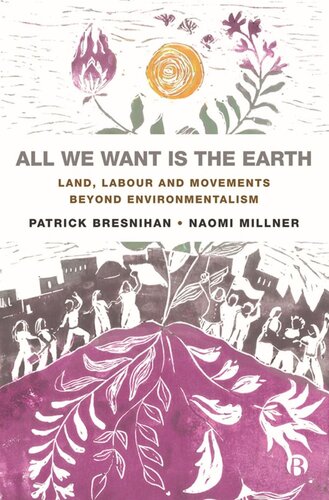

Most ebook files are in PDF format, so you can easily read them using various software such as Foxit Reader or directly on the Google Chrome browser.
Some ebook files are released by publishers in other formats such as .awz, .mobi, .epub, .fb2, etc. You may need to install specific software to read these formats on mobile/PC, such as Calibre.
Please read the tutorial at this link: https://ebookbell.com/faq
We offer FREE conversion to the popular formats you request; however, this may take some time. Therefore, right after payment, please email us, and we will try to provide the service as quickly as possible.
For some exceptional file formats or broken links (if any), please refrain from opening any disputes. Instead, email us first, and we will try to assist within a maximum of 6 hours.
EbookBell Team

0.0
0 reviewsSixty years ago an upsurge of social movements protested the ecological harms of industrial capitalism. In subsequent decades, environmentalism consolidated into forms of management and business strategy that aimed to tackle ecological degradation while enabling development to continue. However, the increasing focus on spaces and species to be protected saw questions of human work and histories of colonialism pushed out of view. This book traces a counter-history of modern environmentalism from the 1960s to the present day. It focuses on claims concerning land, labour and social reproduction arising at important moments in the history of environmentalism made by feminist, anti-colonial, Indigenous, workers’ and agrarian movements. Many of these movements did not consider themselves ‘environmental,’ and yet they offer vital ways forward in the face of escalating ecological damage and social injustice.